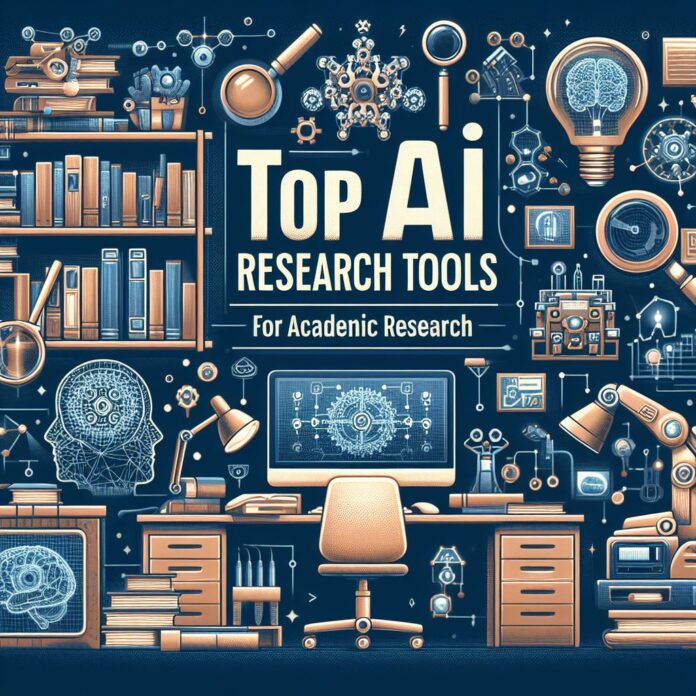Artificial intelligence (AI) is transforming the world of academic research, making it more efficient, accurate, and innovative. AI Research Tools can help researchers find sources, analyze data, generate content, and more. However, with so many tools available, how can researchers choose the best ones for their needs?
In this article, we will review the Top 10 AI Research Tools for academic research, highlighting their features, benefits, and drawbacks.
Table of Contents
1- ChatGPT
ChatGPT is an AI language model that can generate natural and coherent text based on a given prompt or context. It can be used for various purposes, such as writing summaries, abstracts, introductions, and conclusions. ChatGPT can also answer questions, generate hypotheses, and provide feedback. ChatGPT is based on GPT-3, one of the most advanced language models in the world, and can produce high-quality and original text. However, ChatGPT is not perfect, and sometimes it can generate biased, limited, or inaccurate text. Therefore, researchers should always verify and edit the output of ChatGPT before using it in their work.
2- Consensus
Consensus is an AI tool that can answer questions about relationships between concepts, or even cause and effect, based on academic research. It can provide answers from six areas: economics, sleep, social policy, medicine, mental health, and health supplements. Consensus can also list the papers and summarize the top ones that support the answer. Consensus is useful for finding relevant and reliable sources, as well as understanding the current state of knowledge on a topic. However, Consensus has a limited scope, and it may not cover all the topics or domains that researchers are interested in.
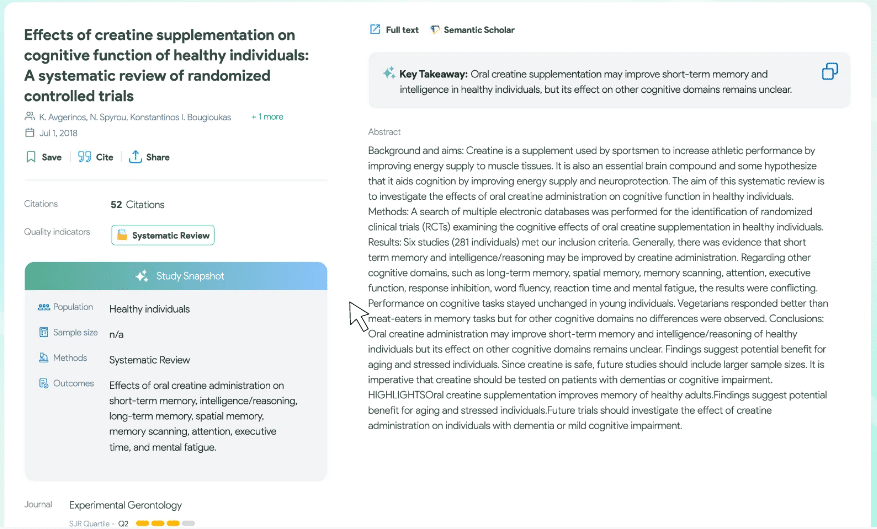
3- Ahrefs Paragraph Generator
Ahrefs Paragraph Generator is an AI Research Tool that can generate well-structured paragraphs that present key arguments, evidence, and analysis, based on the instructions provided by the user. It can be used for writing papers, essays, or research articles, as well as for improving existing paragraphs. Ahrefs Paragraph Generator can help researchers save time and effort, as well as enhance the quality and clarity of their writing. However, the Ahrefs Paragraph Generator is not a substitute for human writing, and it may not capture the nuances and subtleties of the topic or the user’s voice. Therefore, researchers should always review and revise the output of the Ahrefs Paragraph Generator before using it in their work.
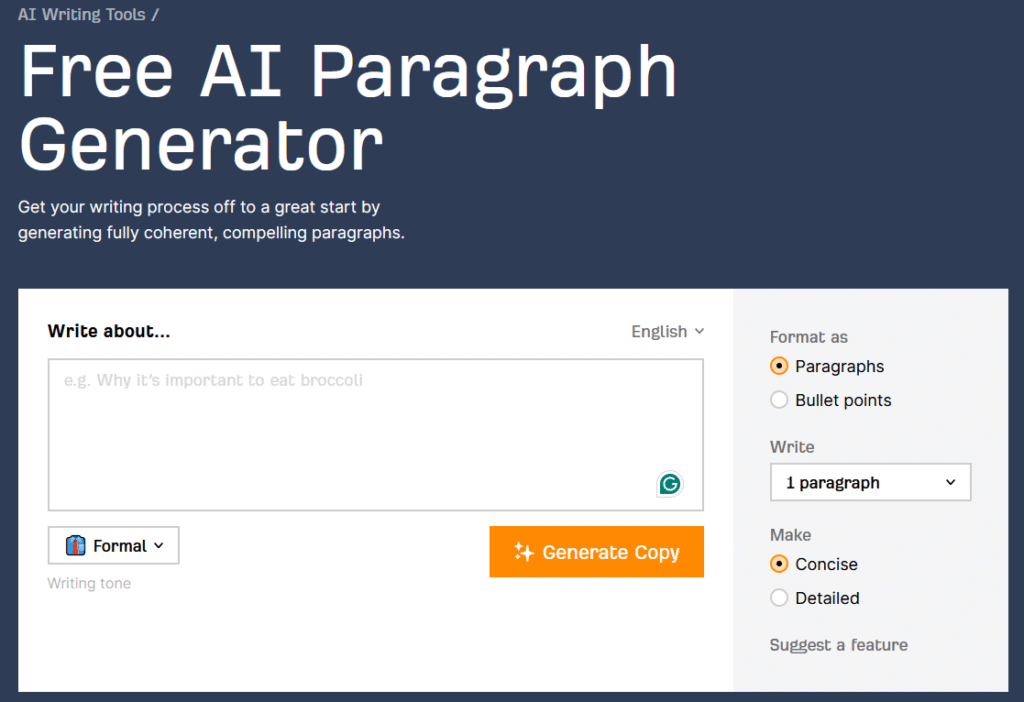
4- Content of Scale
Content at Scale is an AI Research Tool that can generate long-form content, such as blog posts, white papers, reports, and more, based on the user’s input. It can also optimize the content for SEO, readability, and engagement. Content at Scale is not just another layer on top of GPT-3; instead, it is a multi-model approach that prioritizes long-form content and uses advanced semantic and NLP algorithms. Content at Scale can help researchers create engaging and informative content, as well as reach a wider audience. However, Content at Scale is not a free tool, and it may not be affordable for all researchers. Moreover, Content at Scale is not a replacement for human creativity, and it may not reflect the user’s style or tone.
5- Grammarly
Grammarly is an AI Research Tool that can check and correct grammar, spelling, punctuation, and other writing errors, as well as suggest improvements in vocabulary, clarity, tone, and style. It can also detect plagiarism and provide citations. Grammarly can be used for any type of writing, including academic writing, and it can integrate with various platforms, such as Google Docs, Gmail, WordPress, and more. Grammarly can help researchers improve their writing skills, as well as avoid mistakes and plagiarism. However, Grammarly is not infallible, and it may not catch all the errors or nuances in the writing. Therefore, researchers should always proofread and edit their work, as well as use their judgment and critical thinking.
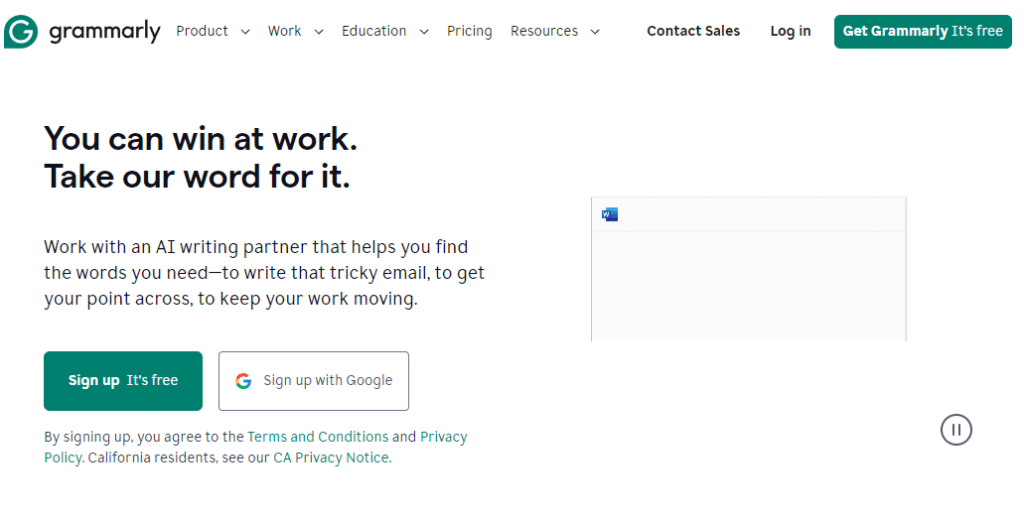
6- Zotero
Zotero is an AI Research Tool that can help researchers collect, organize, cite, and share their research sources. It can automatically extract and save information from web pages, PDFs, books, articles, and more, and it can sync the data across devices and platforms. It can also generate citations and bibliographies in various styles, such as APA, MLA, Chicago, and more. Zotero can help researchers manage their research workflow, as well as ensure the accuracy and consistency of their citations. However, Zotero is not a comprehensive tool, and it may not support all the sources or formats that researchers need. Therefore, researchers should always check and verify the information and citations that Zotero provides.
7- DataRobot
DataRobot is an AI Research Tool that can help researchers build and deploy machine learning models, without requiring coding or programming skills. It can automate the entire process of data preparation, feature engineering, model selection, tuning, validation, and deployment. It can also provide explanations, insights, and recommendations for the models. DataRobot can help researchers leverage the power of machine learning, as well as enhance the speed, accuracy, and scalability of their data analysis. However, DataRobot is not a cheap tool, and it may not be accessible to all researchers. Moreover, DataRobot is not a substitute for human understanding, and it may not account for all the factors or assumptions that affect the data and the models.
8- QuillBot
QuillBot is an AI Research Tool that can help researchers paraphrase, summarize, rewrite, or simplify their text, without changing its meaning or intent. It can also generate synonyms, antonyms, and definitions for words, as well as check grammar and spelling. QuillBot can help researchers avoid plagiarism, as well as improve the diversity, clarity, and conciseness of their writing. However, QuillBot is not a perfect tool, and it may not preserve the original tone, style, or context of the text. Therefore, researchers should always compare and contrast the original and the modified text, as well as use their own words and voice.
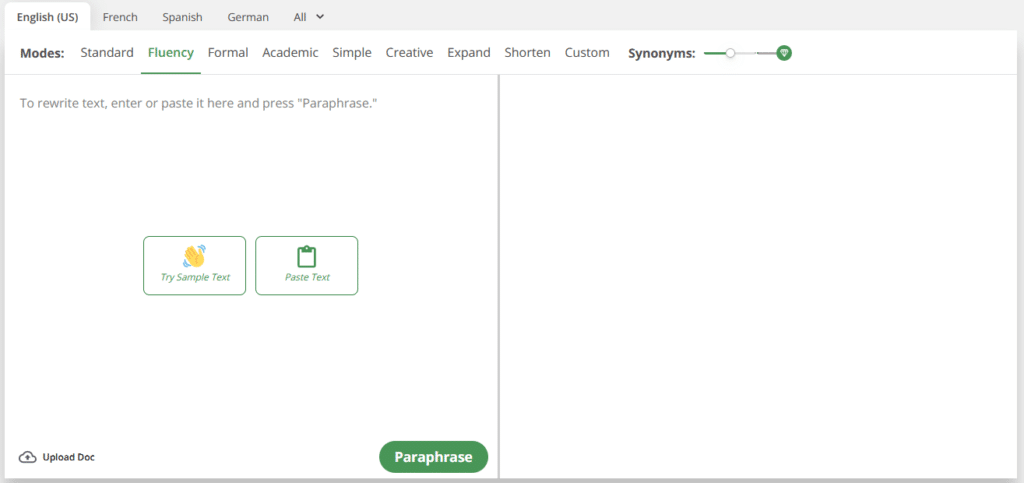
9- Google Scholar
Google Scholar is an AI tool that can help researchers find and access academic literature, such as articles, books, theses, dissertations, and more. It can also provide metrics, such as citations, h-index, and i10-index, for authors and publications. It can also alert researchers to new publications or updates on their topics of interest. Google Scholar can help researchers discover and explore the vast and diverse world of academic research, as well as measure and monitor their impact and influence. However, Google Scholar is not a comprehensive tool, and it may not include all the sources or fields that researchers need. Therefore, researchers should always supplement Google Scholar with other databases and tools.
10- SurveyMonkey
SurveyMonkey is an AI tool that can help researchers create and conduct online surveys, polls, quizzes, and more. It can also help researchers analyze and visualize the data, as well as generate reports and insights. SurveyMonkey can help researchers collect and understand the opinions, preferences, and behaviors of their target audience, as well as test their hypotheses and assumptions. However, SurveyMonkey is not a free tool, and it may not be affordable for all researchers. Moreover, SurveyMonkey is not a guarantee of quality and may not ensure the validity, reliability, or representativeness of the data and the results.
Conclusion
AI Research Tools are revolutionizing the field of academic research, making it more efficient, accurate, and innovative. However, AI Research Tools are not flawless, and they have their own limitations and challenges. Therefore, researchers should always use AI Research Tools with caution and care, as well as with human judgment and critical thinking. AI tools are not a replacement for human research, but rather a complement and a support.


